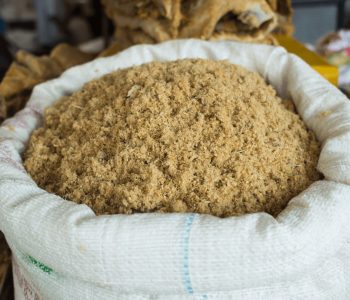Opening new markets in Colombia for animal-origin meal and meat in Japan
The federal government is celebrating the expansion of trade opportunities for Brazilian meals of animal origin. Recently, six new markets have been opened, with two in Colombia and four in Japan. The announcement was made by Roberto Perosa, the Secretary of Commerce and International Relations of the Ministry of Agriculture and Livestock, during a press conference at MAPA.
Concerning Colombia, markets have been established for fishmeal and fish oil from Brazil, intended for animal feed. The Colombian Agricultural Institute (ICA) submitted the phytosanitary certification for these products to the Ministry of Agriculture and Livestock (MAPA).
Colombia stands as the third-largest market for animal-origin meals exported by Brazil. According to the National Administrative Department of Statistics of Colombia (DANE), it is estimated that 67% of Colombian households have at least one pet in 2023.
Brazil is the main exporter of fishmeal and fish oil to Colombia, capturing 60% of the “pet food” segment in the country. Projections indicate that spending on pet food, toys, and accessories in Colombia will reach approximately US$ 5 billion this year.
As for Japan, the openings pertain to canned beef and pork, as well as extracts of beef and pork. This market had been suspended by the Japanese for eight years. With these new trade opportunities, there is an expectation of a gradual and full resumption of exports starting in 2024.
According to Secretary Roberto Perosa, these new markets not only mean increased income and employment but also contribute to a better quality of life and an enhancement of the Human Development Index (HDI) for the population.
“With these new market openings, we are positioning Brazil for a revolution in the agricultural sector. Over the next ten years, the federal government aims to encourage producers to increase production, leading to more jobs, higher income, and a greater contribution of the agribusiness sector to the national Gross Domestic Product (GDP),” he emphasized.
These results are the outcome of joint efforts between the Ministry of Agriculture and Livestock (MAPA) and the Ministry of Foreign Affairs (MRE). Since the beginning of 2023, Brazilian agricultural and livestock products, with a diversified export portfolio, have successfully gained access to 71 new markets across the Americas, Asia, Africa, Oceania, and Europe.
Brazil’s Involvement in Global Trade
Exports from Brazil’s agribusiness for the first ten months of 2023 reached a historic high, amounting to US$ 139.58 billion, reflecting a 3.0% surge compared to the corresponding period in 2022.
The sectors that played a significant role in driving the growth of Brazilian agribusiness exports were:
- Soybean complex (+US$ 4.37 billion)
- Sugar and ethanol complex (+US$ 3.03 billion)
- Cereals, meals, and processed products (+US$ 1.82 billion)
Between January and October 2023, Asia emerged as the primary target for Brazilian agribusiness, recording transactions amounting to US$ 74.60 billion. The European Union followed suit, with an accumulated sum of US$ 18.43 billion.
Source: MAPA
You may also like to read: “Macroalgae Commercialization: Successful Pilot Study Sets the Stage”
